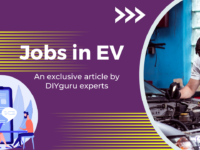In light of the recent events surrounding COVID-19, in order to make it easier for K-12 students to learn and be productive, a team led by Media Lab Associate Professor Cynthia Breazeal has launched a website to share a variety of online activities to learn about artificial intelligence.
Due to this COVID-19 pandemic, parents and educators must be feeling overwhelmed in providing K-12 students classroom level education, and that’s why the team decided to create this website consisting of MIT resources to learn about designing artificial intelligence and its responsible uses.
The website has been created in collaboration between the Media Lab, MIT Stephen A. Schwarzman College of Computing, and MIT Open Learning. It acts as a hub to highlight diverse work by faculty, staff, and students across the MIT community at the intersection of AI, learning, and education.
According to the team, it will be interesting for K-12 students to learn from this website. This website will also help in addressing the requirements of the millions of children, parents, and educators across the world who are locked down at home due to school closures caused by the pandemic, COVID-19. This website will provide free educational activities that support project-based STEM learning in an exciting and innovative area.
According to Professor Cynthia Breazeal, MIT is the birthplace of Constructionism under Seymour Papert. It has revolutionised how children learn computational thinking with hugely successful platforms such as Scratch and App Inventor.

And that’s why “we are now bringing this rich tradition and deep expertise to children who wish to learn about AI through project-based learning that dovetails technical concepts with ethical design and responsible use,” said Breazeal.
This website will include MIT’s latest work in innovating learning and education in the era of artificial intelligence, along with up-to-date project-based activities, learning units, child-friendly software tools, digital interactives, and supporting study materials.
Any student, parent, teacher, or any sort of learners can use this website and its resources to understand the concept of artificial intelligence. The site also has included external resources to explore, such as Teachable Machines by Google. Teachable Machines by Google is a browser-based platform that lets individuals train classifiers for their image-recognition algorithms in a user-friendly way.
The website also has activities that are designed in the tradition of constructionism, which is a concept of learning through project-based experiences. Learners can build and share their work; inspired by the idea of computational action, where children can design AI-enabled technologies to help others in their community.
According to Hal Abelson, an MIT professor of computer science and engineering stated that the institution had been a world leader in AI since the 1960s. He said, “MIT’s approach to making machines intelligent has always been strongly linked with our work in K-12 education. That work is aimed at empowering young people through computational ideas that help them understand the world and computational actions that empower them to improve life for themselves and their communities.”
As automation continues to grow, inequity of education could act as a barrier for students to avail of future opportunities. And, with the advancement in artificial intelligence and its penetration in every industry has made it imperative for students to be responsible designers and conscientious users of AI.
And that’s why, the activities on the website included hands-on programming to paper prototyping, to Socratic seminars, and even creative writing about speculative fiction. Alongside the learning units and project-based activities are created to offer to a broad set of audience with different technology backgrounds. Besides, several of these activities help individuals learn about AI and ways for it to connect to the arts, humanities, and social sciences.
The team believes that by democratising AI through education, will help to make it more accessible and diverse at all levels, ultimately helping to create a more inclusive, fair, and equitable future.

Join our list
Subscribe to our mailing list and get interesting stuff and updates to your email inbox.
















